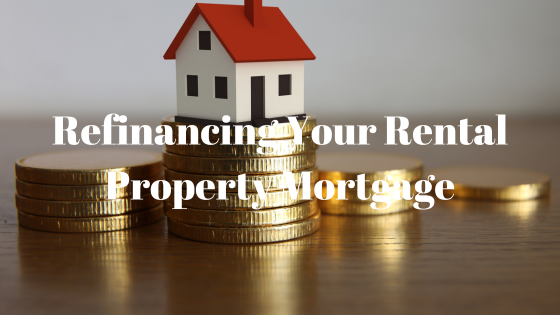North Carolina Landlord Insurance

The high rental market demand in North Carolina attracts many property investors, especially since this state is known for being landlord-friendly. That’s why, starting a rental property business offers plenty of advantages in this area.
On the other hand, North Carolina is prone to be at risk for natural disasters and has seen its share of tornadoes and floods, which result in severe property damage. Knowing this, landlords prepare themselves by signing up for landlord insurance.
As a landlord, getting landlord insurance also increases the protection of renters, which in turn also safeguards your finances. Instead of spending on hefty medical costs when accidents and injuries occur on your property, you can rely on landlord insurance.
In this article, Dawson Property Management will guide you about North Carolina insurance, the types of coverage it offers, and the purpose of why you need to apply for one.
North Carolina Landlord Insurance
In North Carolina, landlord insurance is advisable to purchase to protect your investment properties. It is created for rental property owners rather than residents but North Carolina does not legally require owners to obtain one.
Landlord insurance is also known as rental property insurance and guards you against property damage, liability, and other costly bad situations.
How Landlord Insurance Differs from Homeowners Insurance
Landlord insurance is basically for rental property owners who allow other people to reside in their investment units. You can differentiate landlord insurance from homeowners insurance in the following ways:

- Liability coverage
- Policy cost (landlord insurance is more expensive)
- Homeowner insurance is exclusive to residents
North Carolina Landlord Insurance Coverage
Insurance policies vary depending on the provider and some have more robust protection. Still, a standard coverage can apply such as:
- Coverage on dwelling
- Insurance on personal property
- Insurance on additional structures
- Coverage on liability
- Rental income insurance on possible loss
Generally, extra insurance coverage options are available but not automatically offered. In North Carolina, this pertains to flood insurance coverage and enhanced storm damage insurance.
Since North Carolina can be at risk for flooding, rental units that have additional protections are less exposed to risk when a hurricane hits the area.
Items Not Covered by North Carolina Landlord Insurance
Even if there are several options you can add to your landlord insurance policies, some things are not going to be included in landlord insurance, such as
- Possessions of renter - you can request the tenants to apply for renters insurance to protect their belongings from potential damage from an accident or theft.
- Wear and tear - in case your furniture or appliances decline in value over time due to repeated usage, you cannot ask the insurance provider to cover the repair or replacement of these rental furnishings.
- Intentional damage: if a tenant caused severe property damage intentionally, you cannot expect the insurance company to cover it.

How Landlord Insurance Help North Carolina Rental Property Owners
Although North Carolina does not require landlords to apply for landlord insurance, it is a vital investment that pays off in the long run. With many unpredictable situations, specifically natural disasters, having access to landlord insurance can help you with property rebuilding.
Should a renter get injured while staying in your rental space, your stress with paying costly medical bills is reduced. You can also save on legal fees when tenant conflicts happen, such as evictions.
It is always useful to have dependable landlord insurance, especially when massive damage results from incidents beyond your control.
How Landlord Insurance Costs Are Computed
Different factors affect the cost of landlord insurance. Some of the things that may be evaluated are:
- The length of time your property was built and its condition
- Size, type, and value of the property
- Risk exposure in your specific area
- Coverage terms
- Deductibles
- Extra coverage
- Previous claims
If your rental faces high risks, then the cost is high, too. Clients who have no recent claims from former insurance providers can also be given lower rates.
Landlord insurance requires payment but you can still reduce your premiums and get the coverage you want.

Tips for a Lower Insurance Rate
- Find ways to make your rental space durable by constant renovation: Given that North Carolina is exposed to extreme weather, you can make your rental unit more secure by investing in durable roofing, reinforcing windows, and limiting potential flood damage. These efforts can cause insurance companies to provide a lower insurance policy rate.
- Increase your deductibles: You will need to pay more out-of-pocket when making a claim if you are intent on paying lower monthly insurance premiums. It will always depend on what you prioritize but it is worth considering if your goal is to make a low insurance payment each month.
- Perform meticulous tenant screening: If you don’t have any insurance claims, providers typically assign low rates. You may think you have little control over all situations, but picking the right renters can lead to reduced property damage. This is an area where landlords have power. They can create criteria for accepting renters and stick to the list, even with a vacant rental space.
- Update your appliances: With newer appliances, insurance providers can knock down the rates since potential damage will be lower. Another way that landlords can make improvements is by upgrading the HVAC systems which is crucial to making tenants happy and will encourage them to be long-time residents.
Bottom Line
No matter the size of your rental property in North Carolina, it is critical to have a landlord insurance policy for investment protection.
You can also pay a professional property manager like Dawson Property Management to oversee your rental business, so they can assist in screening for top-tier renters and schedule repairs for damage right away.
Contact us today to learn more about our services!







